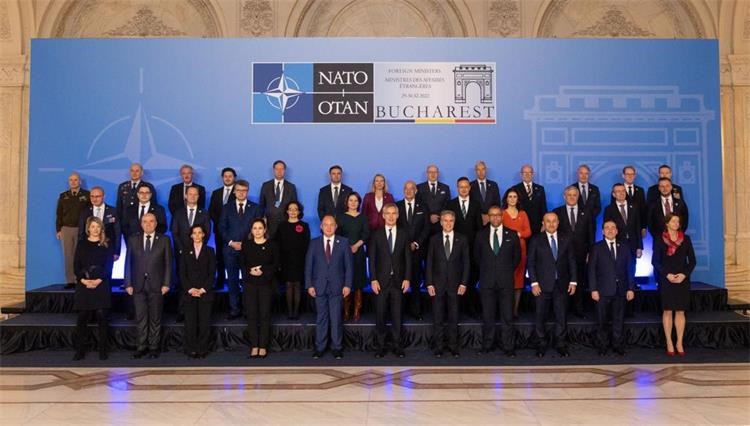- Published: 29.11.2022.
By investing in its own defence and security, Croatia is strengthening NATO
At a meeting in Bucharest, NATO foreign ministers will discuss how to strengthen the common support to Ukraine in view of the coming winter and the intensification of Russian attacks, Croatian Foreign Minister Gordan Grlić Radman said on Tuesday.
"We will talk with our future allies Finland and Sweden for the first time about concrete aid that should be long term, sustainable and adequately financed," Grlić Radman said addressing Croatian reporters in Bucharest.
He added that Ukrainian Foreign Minister Dmytro Kuleba would inform them about the latest situation in Ukraine.
"We will hear first hand from him about the priorities and needs, how we can further help," he said.
The high representative of the EU for foreign and security policy Josep Borrell is also participating in the two-day meeting, added Grlić Radman, because the cooperation between the EU and NATO regarding Ukraine is "crucial."
Croatia will advocate continuing aid to Ukraine, as it promised at the first parliamentary summit of the Crimea Platform a little over a month ago in Zagreb, the minister said.
"Croatia has helped Ukraine from the very beginning and will continue to do so, politically, financially and, of course, militarily as long as necessary," Grlić Radman said.
According to him, the meeting will also discuss NATO's capacities and allocations for defence, which was also discussed at a summit in Madrid at the end of June this year.
He added that Croatia already allocates 2.16% of its GDP for defence and 30.6% of the military budget for modernisation, which is why it is among the eight NATO member countries that meet all standards.
"That in itself says that we are strengthening Croatia, our defence, we are strengthening security, but we are also strengthening the NATO alliance," he said.
Regarding the countries of the Western Balkans in the context of the war in Ukraine, the minister said that these countries must support European values ??and the European common foreign and security policy.
"These countries must take a clear stand when it comes to condemning the Russian aggression, when it comes to imposing sanctions on Russia," he said.
"The expression of solidarity must be evident, it cannot only be in words," underscored Grlić Radman.
Text: Hina/MFEA
Press releases
"We will talk with our future allies Finland and Sweden for the first time about concrete aid that should be long term, sustainable and adequately financed," Grlić Radman said addressing Croatian reporters in Bucharest.
He added that Ukrainian Foreign Minister Dmytro Kuleba would inform them about the latest situation in Ukraine.
"We will hear first hand from him about the priorities and needs, how we can further help," he said.
The high representative of the EU for foreign and security policy Josep Borrell is also participating in the two-day meeting, added Grlić Radman, because the cooperation between the EU and NATO regarding Ukraine is "crucial."
Croatia will advocate continuing aid to Ukraine, as it promised at the first parliamentary summit of the Crimea Platform a little over a month ago in Zagreb, the minister said.
"Croatia has helped Ukraine from the very beginning and will continue to do so, politically, financially and, of course, militarily as long as necessary," Grlić Radman said.
According to him, the meeting will also discuss NATO's capacities and allocations for defence, which was also discussed at a summit in Madrid at the end of June this year.
He added that Croatia already allocates 2.16% of its GDP for defence and 30.6% of the military budget for modernisation, which is why it is among the eight NATO member countries that meet all standards.
"That in itself says that we are strengthening Croatia, our defence, we are strengthening security, but we are also strengthening the NATO alliance," he said.
Regarding the countries of the Western Balkans in the context of the war in Ukraine, the minister said that these countries must support European values ??and the European common foreign and security policy.
"These countries must take a clear stand when it comes to condemning the Russian aggression, when it comes to imposing sanctions on Russia," he said.
"The expression of solidarity must be evident, it cannot only be in words," underscored Grlić Radman.
Text: Hina/MFEA



